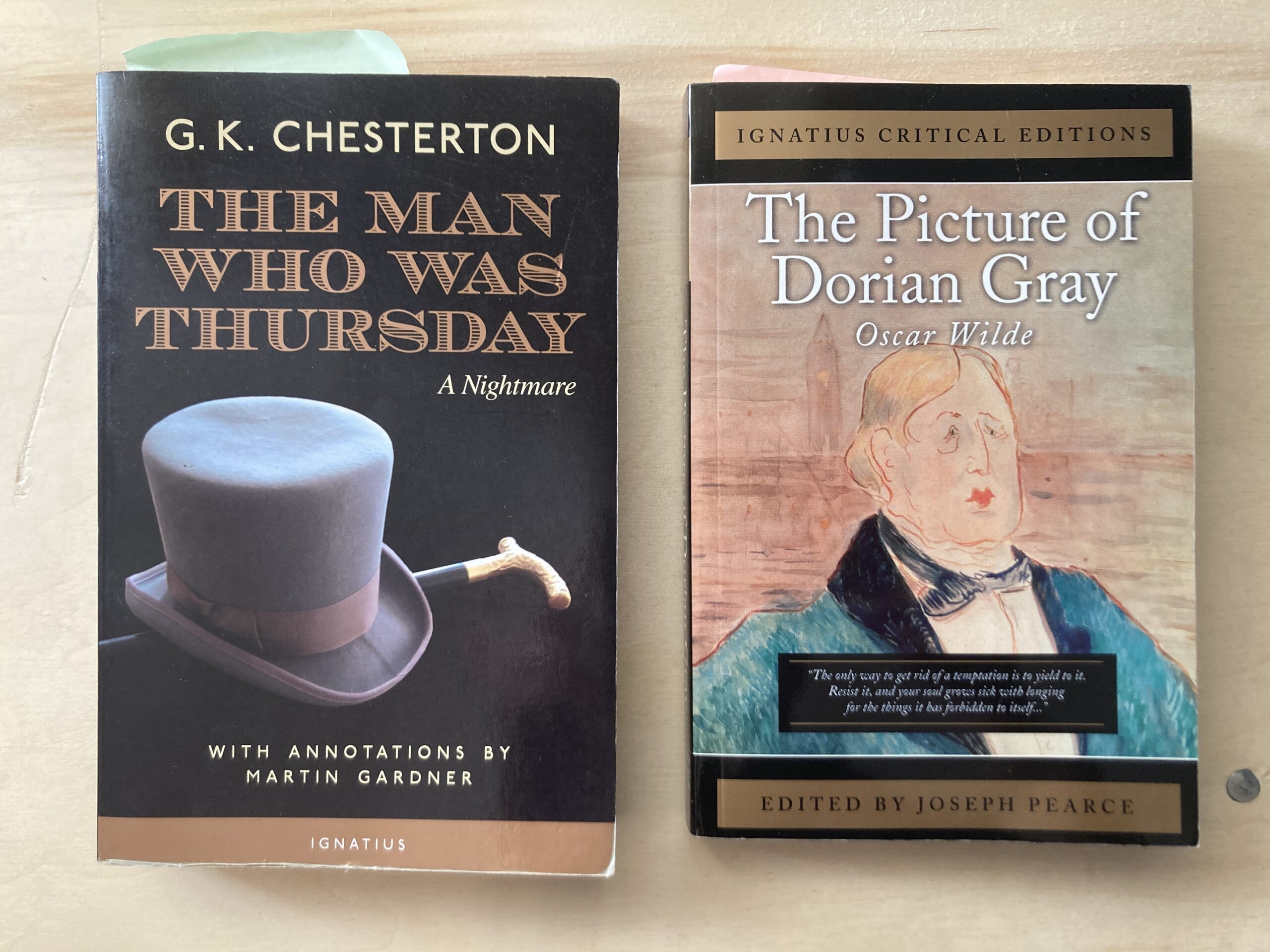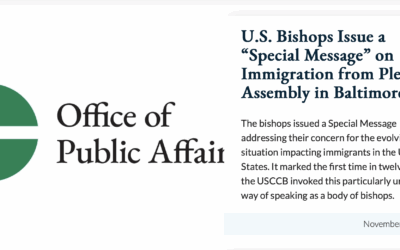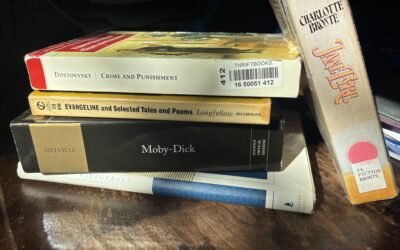At the beginning of the summer, I came down with some sort of virus that made me ill for about a day or two and then feeling much better but drained of all energy in the subsequent week and a half. Unable to do much else, I decided to use the time to catch up on some reading. I’m working my way through a list of 100Great Works of Literature Every Catholic Should Know Joseph Pearce compiled in his book Literature: What Every Catholic Should Know. While recovering, I managed to read both The Man Who Was Thursday by GK Chesterton and The Picture of Dorian Gray by Oscar Wilde and it ended up being a very interesting exercise in literature for there cannot be two people with so much in common and, yet, that are so unalike.
I loved every word of The Man Who Was Thursday. It was a compelling book of intrigue and it was very witty (Of course! It was written by GK Chesterton). Each turn of the page brought more surprise and hope than the last and the ending was very satisfying.
The Picture of Dorian Gray was more of a slog for me. It was not that the writing was bad. The writing was exceptional. What I found to be a toil was the world Wilde immersed the reader in. The pretention, drama, decadence and arrogance were so palpable they were almost their own characters in the story. I spent a lot of the book wishing I could reach into the pages and slap those people for being so awful. Or should I say horrid, which is what they would say in that everyone in that book used the word horrid to describe everybody and everything all the time.
Speaking of horrid, at one point in the story, some of Dorian Gray’s associates (I’m not sure I’d call them friends in that these people would not know what friendship was even if it were expensive, stylishly adorned and served to them on a silver platter) were “duck hunting” when one of the hirelings that flushed out ducks from their hiding spots was accidentally shot. The elitist shooters were more upset that they would have to end their fun of shooting than they were over the fact that one of them had just ended someone’s life.
However, given all that, the ending was very satisfying.
It was astounding to me that these two men could write such different novels. They were contemporaries, both living in England (though Wilde was Irish) both writers, both poets, both known for their wit and both eventually found their way into the Catholic church. Yet their paths were so different from each other’s as to give the impression that they lived on separate planets in different universes eons apart.
Their respective novels must have reflected the very different paths each walked. Chesterton took a sunny jaunt down the path of wonder, gratitude, common sense and paradox. Wilde took the “horrid” path into the distant country of decadence, flamboyance, pretention and aesthetics.
Despite their wildly divergent journeys, they each were reconciled with God before death and both found their way onto a list of 100 books Catholics should read. Like the endings of their novels, the endings of their lives were very satisfying.





0 Comments